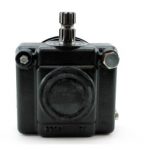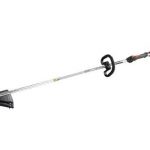LawnEQ is a trusted source for genuine OEM Parts- Shop for the part you need from your favorite manufacturers such as Landpride, Toro, Kubota, and more today on our OEM Parts Lookup Tool!
In the past, you really only had two choices when it came to getting your lawn mower moving – either gasoline, or human power. Technology has developed, and the need for alternate fuels has grown, so now there are a variety of mowers and mower conversions you can get to work your lawn and garden with. Each type of fuel has different advantages and disadvantages.
Gasoline
The old favorite, gasoline is easy to come by and inexpensive to purchase. Gasoline engines also tend to be the easiest engines to work on – they are small and simple, which is why they are still the prevalent engine. They’re also the only realistic choice for push mowers. Only gasoline-powered engines can be made small enough for a push mower platform, and they can also make do with smaller fuel reservoirs.
Of course, gasoline has some drawbacks. Seasonal storage can be a problem. If gasoline is left inside an engine, it can clog up the fuel system as it turns into a varnish-type sludge that can gum up a carburetor. Gasoline is also incredibly flammable and emits some nasty fumes, so you have to be quite cautious with where and how you store it. A stray spark or an open flame heater left carelessly close can have a terrible outcome. There is spill risk, and gasoline also evaporates over time. You can’t not let it vent, but because of having to let it vent, you’ll lose some of what you buy.
Diesel
A growing choice, particularly in machines that need some extra torque for some of the tougher tasks. It is only found on riding mowers, as diesel engines are bulky and they really can’t be down-tuned enough to make for worthwhile push mowers. Diesel comes with some of the similar drawbacks as gasoline – it can spoil over seasonal storage, losing its potency. It can also gum up your engine if you let it sit over a season.
That being said, it burns a little more cleanly than gasoline does. It is fairly available, commonly found at gas stations. It is often the same or cheaper as gasoline.
Propane
Propane has been growing as an alternative fuel, thanks to burning cleaner and producing less emissions. It doesn’t have the same issues as diesel and gasoline when it comes to seasonal usage, it won’t gum up your engine or fuel system. Propane is cheaper by the gallon, ringing in at a dollar less a gallon usually.
Some issues that face propane as an alternative fuel is the high cost of entry – most propane-powered mowers will cost much more than a gasoline or diesel mower, although it will pay you back in the long run. Even a conversion kit is not cheap.
Compressed Natural Gas
Like propane, Compressed Natural Gas (CNG) was adapted more recently to mower usage. It comes in a compact, sealed and pressurized container, making it easy to store and stable over the long term of seasonal storage. It is incredibly efficient, burns very cleanly, and eliminates the problem of evaporation. It reduces the wear and tear on the engine parts, and also reduces the likelihood of fuel theft due to its limited uses and how it has to be stored. A CNG-powered machine will be a major investment, just as with the propane-powered mower, but again, it will pay you back in the long run.
So beware of the pluses and minuses of each type of fuel used in mowers, and make a choice that fits your lifestyle.







2 thoughts on “Dealing with the Different Fuels”
Comments are closed.